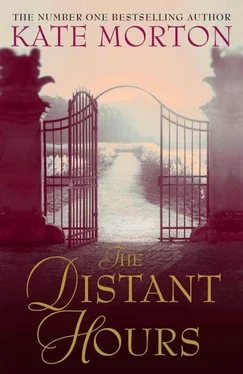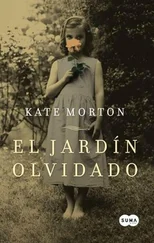I wanted to ask, ‘What happened?’ but the insinuation that she was no longer any of those things seemed cruel. I was glad when Dad continued anyway.
‘Things changed,’ he said, ‘after your brother. After Daniel. Things were different then.’
I couldn’t be certain I’d ever heard my dad say Daniel’s name and the effect was to freeze me. There were so many things I wanted to say, to ask, that they swamped one another and I managed only, ‘Oh.’
‘It was a terrible thing.’ His voice was slow and even, but his bottom lip betrayed him, a strange, involuntary mobility that made my heart constrict. ‘A terrible thing.’
I touched his arm lightly, but he didn’t seem to notice. His eyes were fixed on a patch of carpet by the door; he smiled wistfully at something that wasn’t there, before saying, ‘He used to jump. He loved it. “I jump!” he’d say. “Look, Daddy, I jump!”’
I could picture him then, my little-big brother, beaming with pride while he took clumsy frog leaps around the house. ‘I would have liked to know him.’
Dad planted his hand on top of mine. ‘I’d have liked that, too.’
The night breeze toyed with the curtain by my shoulder and I shivered. ‘I used to think we had a ghost. When I was little. I sometimes heard you and Mum talking; I heard you say his name, but whenever I came into the room you stopped. I asked Mum about him once.’
He looked up and his eyes searched mine. ‘What did she say?’
‘She said I was imagining things.’
Dad lifted one of his hands and frowned at it, spidered his fingers into a loose fist, scrunching an invisible piece of paper as he gave a rumpled sigh. ‘We thought we were doing the right thing. We did the best we could.’
‘I know you did.’
‘Your mum…’ He tightened his lips against his sorrow and a part of me wanted to put him out of his misery. But I couldn’t. I’d waited such a long time to hear this story – it described my absence, after all – and I was greedy for any crumb he might share. He chose his next words with a care that was painful to watch. ‘Your mother took it especially badly. She blamed herself. She couldn’t accept that what happened – ’ he swallowed – ‘what happened to Daniel was an accident. She got it into her head that she’d brought it on herself somehow, that she deserved to lose a child.’
I was speechless, and not just because what he described was so horrid, so sad, but because he was telling me at all. ‘But why would she think such a thing?’
‘I don’t know.’
‘Daniel’s condition wasn’t hereditary.’
‘No.’
‘It was just…’ I struggled for words that weren’t, ‘one of those things’, but failed.
He folded over the cover of his spiral notebook, laid it evenly on top of the Mud Man and set them on the bedside table. Evidently, we wouldn’t be reading tonight. ‘Sometimes, Edie, a person’s feelings aren’t rational. At least, they don’t seem that way on the surface. You have to dig a little deeper to understand what lies at the base.’
And I could only nod because the day had already been so bizarre and now my father was reminding me about the subtleties of the human condition and it was all just too topsy-turvy to compute.
‘I’ve always suspected it had something to do with her own mother; a fight they’d had years before, when your mum was still a teenager. They became estranged afterwards. I never knew the details, but whatever your gran said, Meredith remembered it when she lost Daniel.’
‘But Gran would never have hurt Mum, not if she could help it.’
He shook his head. ‘You never can tell, Edie. Not with people. I never liked the way your gran and Rita used to gang up on your mother. It used to leave a bad taste in my mouth. The two of them setting against her, using you to create a wedge.’
I was surprised to hear his reading of the situation; touched by the care in his voice as he told me. Rita had implied that Mum and Dad were snobs, that they’d looked down on the other side of the family, but to hear Dad tell it – well, I began to wonder whether things weren’t quite as clear as I’d supposed.
‘Life’s too short for rifts, Edie. One day you’re here, the next you’re not. I don’t know what’s happened between you and your mum, but she’s unhappy and that makes me unhappy, and I’m a not- quite -old-yet chap, recovering from a heart attack, whose feelings must be taken into account.’
I smiled, and he did too. ‘Patch it up with her, Edie love.’ I nodded.
‘I need my mind clear if I’m to sort out this Mud Man business.’
I sat on top of my bed later that night with the letting pages spread out before me, doodling circles around flats I hadn’t a hope of affording and wondering about the sensitive, funny, laughing, crying young woman I’d never had the chance to know. An enigma in one of those dated photographs – the square ones with the rounded corners and the soft, sun-shadowed colours – wearing faded bell-bottoms and a floral blouse, holding the hand of a little boy with a bowl haircut and leather sandals. A little boy who liked to jump, and whose death would soon despoil her.
I thought, too, about Dad’s suggestion that Mum had blamed herself when Daniel died. Her conviction that she’d deserved to lose a child. Something in the way he’d said it, his use of the word ‘lost’ perhaps, his suspicion that it had something to do with a fight she’d had with Gran, made me think of Mum’s final letter home to her parents. Her pleas to be allowed to remain at Milderhurst, her insistence that she’d finally found the place where she belonged, her reassurances that her choice didn’t mean Gran had ‘lost’ her.
Links were being made, I could feel them, but my stomach didn’t care one whit. It issued an unceremonious interruption, reminding me that I hadn’t eaten a bite since Herbert’s lasagne.
The house was quiet and I went carefully along the dark corridor towards the stairs. I’d almost made it when I noticed the thin strip of light issuing from beneath Mum’s bedroom door. I hesitated, the promise I’d made to Dad ringing in my ears; the small matter of patching things up. I didn’t like my chances – there’s no one quite like Mum for skating airily along the surface of a frost – but it was important to Dad, so I drew a deep breath and knocked, ever so lightly, on the door. Nothing happened and for a moment I thought I might be spared, but then a soft voice came from the other side: ‘Edie? Is that you?’
I opened the door and saw Mum sitting up in bed beneath my favourite painting of the full moon turning a liquorice-black sea to mercury. Her reading glasses were balanced on the tip of her nose and a novel called The Last Days in Paris leaned against her knees. Her expression as she blinked at me was one of strained uncertainty.
‘I saw the light under the door.’
‘I couldn’t sleep.’ She tilted the book towards me. ‘Reading helps sometimes.’
I nodded agreement and neither of us spoke further; my stomach noticed the silence and took the opportunity to fill it. I was making movements to excuse myself and escape back towards the kitchen, when Mum said, ‘Close the door, Edie.’
I did as she said.
‘Please. Come and sit down.’ She took off her glasses and hung them by the chain over her bedpost. I sat carefully, leaning against the wooden end-rail in the same place I’d occupied as a kid on birthday mornings.
‘Mum,’ I started, ‘I-’
‘You were right, Edie.’ She slid the bookmark into her novel, closed its cover but didn’t relinquish it to the bedside table. ‘I did take you back to Milderhurst. Many years ago now.’
Читать дальше












